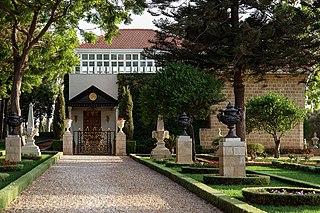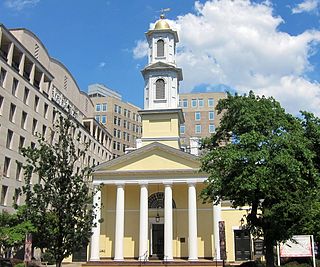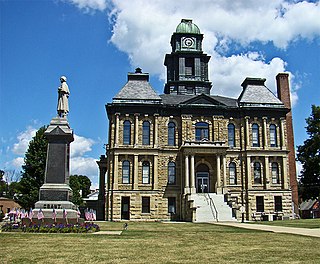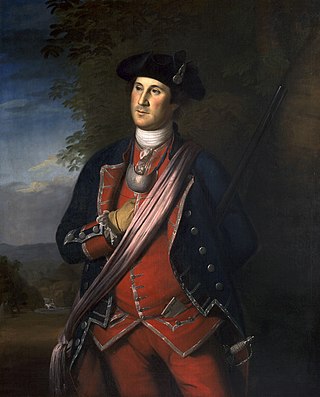
The Baháʼí Faith is a religion founded in the 19th century that teaches the essential worth of all religions and the unity of all people. Established by Baháʼu'lláh, it initially developed in Iran and parts of the Middle East, where it has faced ongoing persecution since its inception. The religion is estimated to have 5 to 8 million adherents, known as Baháʼís, spread throughout most of the world's countries and territories.

Religious affiliations can affect the electability of the presidents of the United States and shape their stances on policy matters and their visions of society and also how they want to lead it. While no president has ever openly identified as an atheist, Thomas Jefferson, Abraham Lincoln, and William Howard Taft were speculated to be atheists by their opponents during political campaigns; in addition, a survey during the presidency of Donald Trump showed that 63% of Americans did not believe he was religious, despite his professed Christian affiliation. Trump supporters have also circulated conspiracy theories that Barack Obama is a Muslim. Conversely, other presidents, such as Jimmy Carter, have used their faith as a defining aspect of their campaigns and tenure in office.

Religion is a range of social-cultural systems, including designated behaviors and practices, morals, beliefs, worldviews, texts, sanctified places, prophecies, ethics, or organizations, that generally relate humanity to supernatural, transcendental, and spiritual elements—although there is no scholarly consensus over what precisely constitutes a religion. Different religions may or may not contain various elements ranging from the divine, sacredness, faith, and a supernatural being or beings.
The meaning of spirituality has developed and expanded over time, and various meanings can be found alongside each other. Traditionally, spirituality referred to a religious process of re-formation which "aims to recover the original shape of man", oriented at "the image of God" as exemplified by the founders and sacred texts of the religions of the world. The term was used within early Christianity to refer to a life oriented toward the Holy Spirit and broadened during the Late Middle Ages to include mental aspects of life.

Persi Warren Diaconis is an American mathematician of Greek descent and former professional magician. He is the Mary V. Sunseri Professor of Statistics and Mathematics at Stanford University.

Holmes County is a county in the U.S. state of Ohio. As of the 2020 Census, the population was 44,223. Its county seat is Millersburg. The county was formed in 1824 from portions of Coshocton, Tuscarawas and Wayne counties and organized the following year. It was named after Andrew Holmes, an officer killed in the War of 1812.
The world's principal religions and spiritual traditions may be classified into a small number of major groups, though this is not a uniform practice. This theory began in the 18th century with the goal of recognizing the relative levels of civility in different societies, but this practice has since fallen into disrepute in many contemporary cultures.
Religion in the United States is both widespread and diverse, with higher reported levels of belief than other wealthy Western nations. Polls indicate that an overwhelming majority of Americans believe in a higher power (2021), engage in spiritual practices (2022), and consider themselves religious or spiritual (2017).

Samuel Benjamin Harris is an American philosopher, neuroscientist, author, and podcast host. His work touches on a range of topics, including rationality, religion, ethics, free will, neuroscience, meditation, psychedelics, philosophy of mind, politics, terrorism, and artificial intelligence. Harris came to prominence for his criticism of religion, and is known as one of the "Four Horsemen" of New Atheism, along with Richard Dawkins, Christopher Hitchens, and Daniel Dennett.

The religious views of George Washington have long been debated. While some of the other Founding Fathers of the United States, such as Thomas Jefferson, Benjamin Franklin, and Patrick Henry, were noted for writing about religion, Washington rarely discussed his religious and philosophical views.
David L. Holmes was an American church historian. He was Walter G. Mason Professor of Religious Studies at the College of William and Mary. He was married to Carolyn Coggin Holmes, executive director of James Monroe's Highland from 1975 to 2012. They had two daughters.

Scientology is a set of beliefs and practices invented by the American author L. Ron Hubbard, and an associated movement. It is variously defined as a cult, a business, a religion, a scam, or a new religious movement. Hubbard initially developed a set of ideas that he called Dianetics, which he represented as a form of therapy. An organization that he established in 1950 to promote it went bankrupt, and Hubbard lost the rights to his book Dianetics in 1952. He then recharacterized his ideas as a religion, likely for tax purposes, and renamed them Scientology. By 1954, he had regained the rights to Dianetics and founded the Church of Scientology, which remains the largest organization promoting Scientology. There are practitioners independent of the Church, in what is referred to as the Free Zone. Estimates put the number of Scientologists at under 40,000 worldwide.
The Abrahamic religions are a grouping of three of the major religions together due to their historical coexistence and competition; it refers to Abraham, a figure mentioned in the Hebrew Bible, the Christian Bible, and the Quran respectively, and is used to show similarities between these religions and put them in contrast to Indian religions, Iranian religions, and the East Asian religions. Furthermore, some religions categorized as "Abrahamic" also share elements from other categories, such as Indian religions, or for example, Islam with Eastern religions.

The efficacy of prayer has been studied since at least 1872, generally through experiments to determine whether prayer or intercessory prayer has a measurable effect on the health of the person for whom prayer is offered. A study in 2006 indicates that intercessory prayer in cardiac bypass patients had no discernible effects.
The term New Atheism describes the positions of some atheist academics, writers, scientists, and philosophers of the 20th and 21st centuries. New Atheism advocates the view that superstition, religion, and irrationalism should not be tolerated. Instead, they advocate the antitheist view that the various forms of theism should be criticised, countered, examined, and challenged by rational argument, especially when they exert strong influence on the broader society, such as in government, education, and politics. Critics have characterised New Atheism as "secular fundamentalism" or "fundamentalist atheism". Major figures of New Atheism include Richard Dawkins, Sam Harris, Christopher Hitchens, and Daniel Dennett, collectively referred to as the "Four Horsemen" of the movement.

Church attendance is a central religious practice for many Christians; some Christian denominations require church attendance on the Lord's Day (Sunday). The Canon Law of the Catholic Church states, "on Sundays and other holy days of obligation, the faithful are bound to participate in the Mass". The Westminster Confession of Faith is held by the Reformed Churches and teaches first-day Sabbatarianism and the duty of church attendance on this day. Similarly, the General Rules of the Methodist Church also requires "attending upon all the ordinances of God" including "the public worship of God". The Lutheran Christian theologian Balthasar Münter stated that church attendance is the "foundation for the Christian life" as "the Christian Bible and the sacraments provide the framework for the faith"; he also states that it is important for believers because it aids in the prevention of backsliding, as well as offers "the company of other believers". Until 1791, it was a legal requirement in the Kingdom of Great Britain to attend services of the Church of England at least twice a year.
A religious delusion is defined as a delusion, or fixed belief not amenable to change in light of conflicting evidence, involving religious themes or subject matter. Religious faith, meanwhile, is defined as a belief in a religious doctrine or higher power in the absence of evidence. Psychologists, scientists, and philosophers have debated the distinction between the two, which is subjective and cultural.
J. Shawn Landres is a social entrepreneur and independent scholar, and local civic leader, known for applied research related to charitable giving and faith-based social innovation and community development, as well as for innovation in government and civic engagement.









